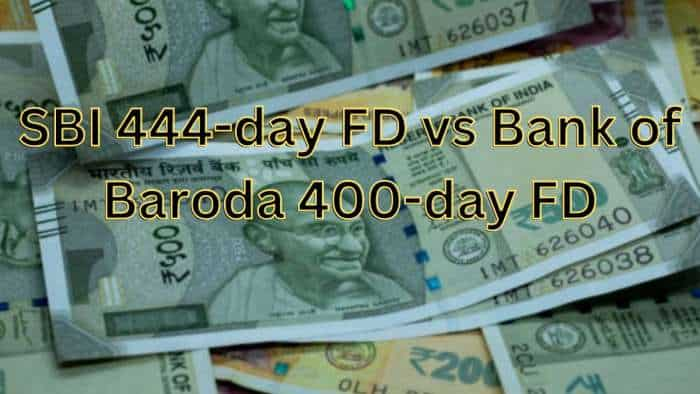Supreme Court loan moratorium order on interest waiver: PSU Banks may have to take Rs 2,000 cr hit
Public sector banks may have to bear a burden of Rs 1,800-2,000 crore arising due to a recent Supreme Court judgement on the waiver of compound interest on all loan accounts which opted for moratorium during March-August 2020, sources said.

Public sector banks may have to bear a burden of Rs 1,800-2,000 crore arising due to a recent Supreme Court judgement on the waiver of compound interest on all loan accounts which opted for moratorium during March-August 2020, sources said.
The judgement covers loans above Rs 2 crore as loans below this got blanket interest on interest waiver in November last year. Compound interest support scheme for loan moratorium cost the government Rs 5,500 crore during 2020-21 and the scheme covered all borrowers including the prompt one who did not avail moratorium.
According to banking sources, initially 60 per cent of borrowers availed moratorium and gradually the percentage came down to 40 per cent and even less as collection improved with ease in lockdown. In case of corporate, this was as low as 25 per cent as far as public sector banks were concerned.
They further said, banks would provide compound interest waiver for the period a borrower had availed moratorium. For example, if a borrower availed moratorium of three months, the waiver would be for that period.
The RBI on March 27 last year announced a loan moratorium on payment of instalments of term loans falling due between March 1 and May 31, 2020, due to the pandemic, later the same was extended to August 31.
The apex court order this time is only limited to those who availed moratorium so the liability of the public sector bank should be less than Rs 2,000 crore as per rough calculations, sources added.
Besides, they said, the order does not specify a timeframe for the settlement of compound interest unlike last time so banks can devise a mechanism of adjusting or settling it in staggered manner.
Meanwhile, Indian Banks' Association (IBA) has written to the government to compensate lenders for interest on interest waiver.
The government would take a call depending on various considerations.
The Supreme Court last month directed that no compound or penal interest shall be charged from borrowers for the six-month loan moratorium period, which was announced last year amid the COVID-19 pandemic, and the amount already charged shall be refunded, credited or adjusted.
The apex court refused to interfere with the Centre and Reserve Bank of India (RBI's) decision to not extend the loan moratorium beyond August 31 last year, saying it is a policy decision.
Rejecting pleas for a complete waiver on interest the court opined that such a move would have consequences on the economy. The bench also said that interest waiver would affect depositors. Along with this, the court also rejected pleas for further relief in the matter.
Get Latest Business News, Stock Market Updates and Videos; Check your tax outgo through Income Tax Calculator and save money through our Personal Finance coverage. Check Business Breaking News Live on Zee Business Twitter and Facebook. Subscribe on YouTube.
RECOMMENDED STORIES

Ppf interest rate maturity retirement corpus planning calculator how to get inr rs 85000 month tax free income from public provident fund calculations 80c tax benefits what will be interest amount

SBI Latest FD Rates: This is what you can get on Rs 10 lakh investment in 1-year, 3-year, and 5-year tenures

Reduce Home Loan EMI vs Reduce Tenure: Which prepayment option can help save Rs 55 lakh, & 7 years and 9 months on Rs 80 lakh, 30-year loan

Rs 111 SIP for 41 years vs Rs 1,111 SIP for 21 years vs Rs 11,111 SIP for 11 years; which of 3 can give 27-time return?

SBI 444-day FD vs Bank of Baroda 400-day FD: What will be maturity amounts on Rs 6 lakh and Rs 10 lakh investments for general and senior citizens?
03:19 PM IST










 Vodafone Idea and Bharti Airtel stocks in focus as SC ruling lifts tax credit restrictions
Vodafone Idea and Bharti Airtel stocks in focus as SC ruling lifts tax credit restrictions Supreme Court to hear today plea on air pollution in Delhi
Supreme Court to hear today plea on air pollution in Delhi Colonial era practice changes as Lady Justice in Supreme Court library now holds Indian Constitution with open eyes
Colonial era practice changes as Lady Justice in Supreme Court library now holds Indian Constitution with open eyes NEET-PG exam: SC seeks Centre's response on 'lack of transparency' issue; next hearing on September 30
NEET-PG exam: SC seeks Centre's response on 'lack of transparency' issue; next hearing on September 30 Supreme Court to hear plea seeking disclosure of NEET-PG question paper, answer keys
Supreme Court to hear plea seeking disclosure of NEET-PG question paper, answer keys